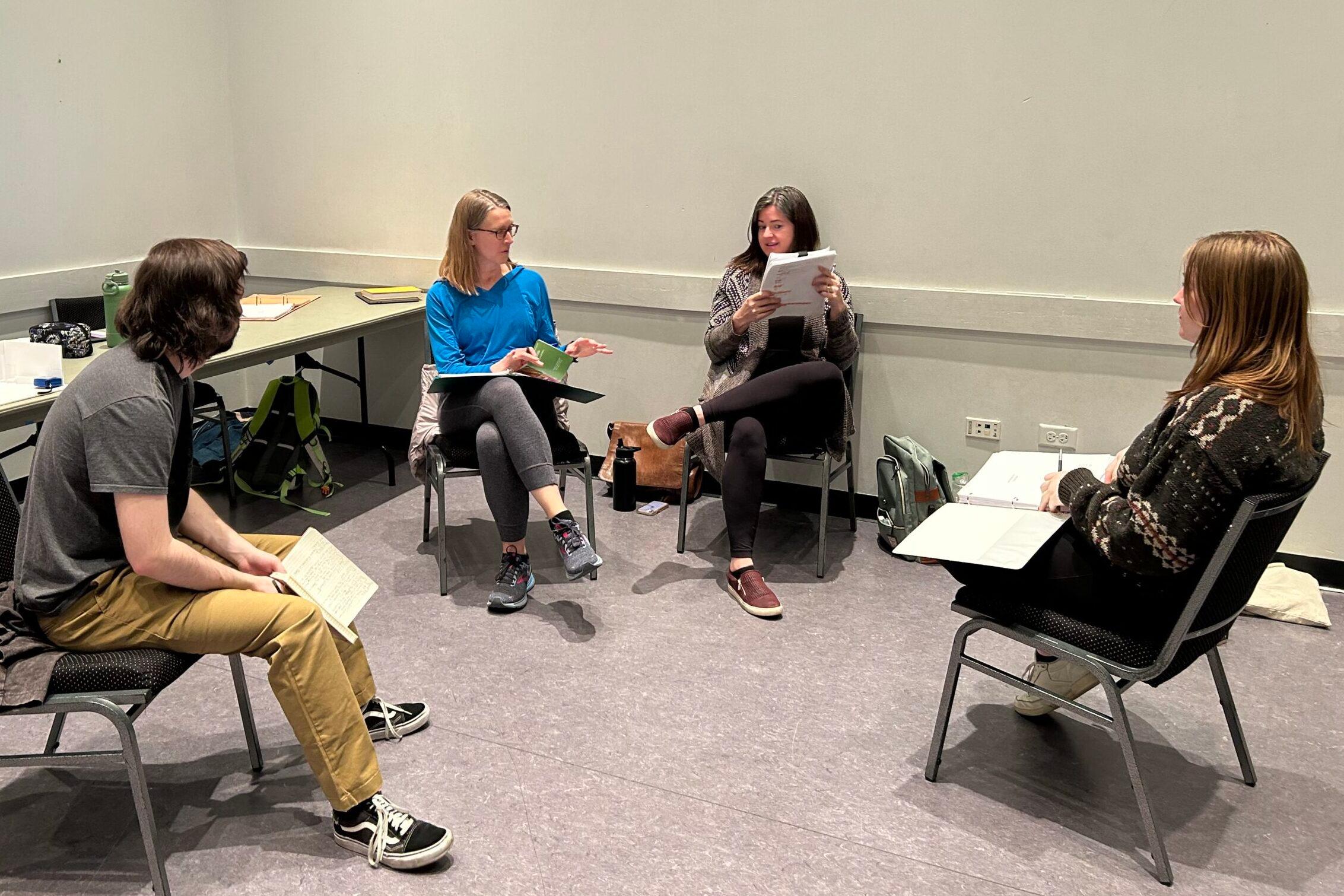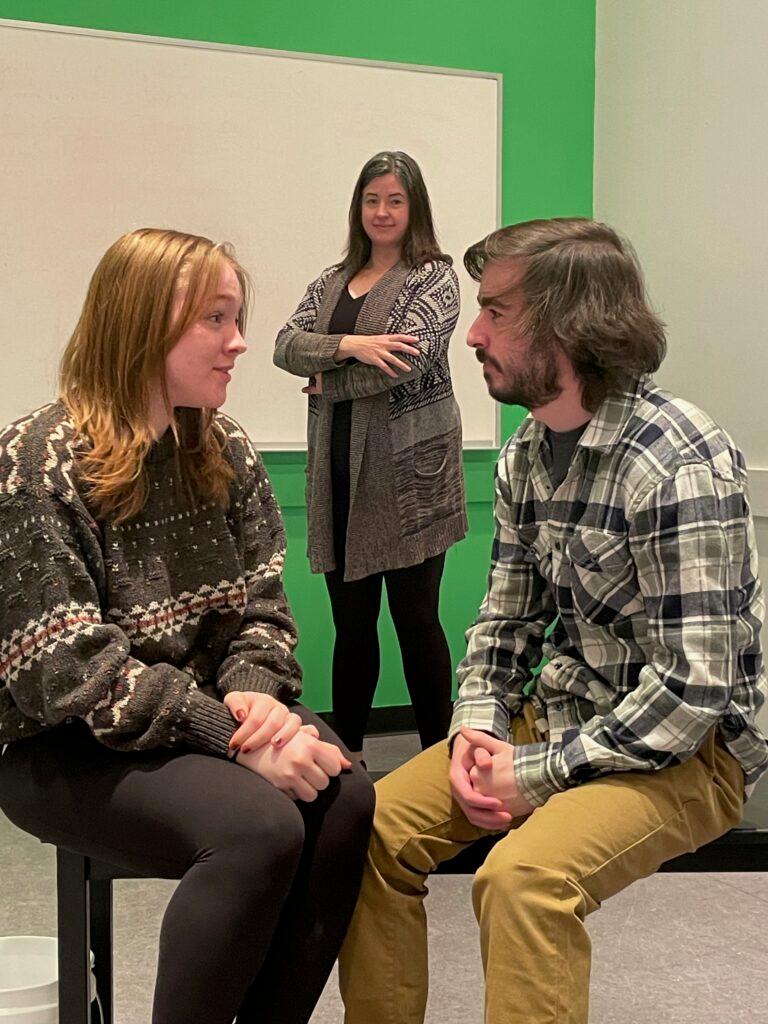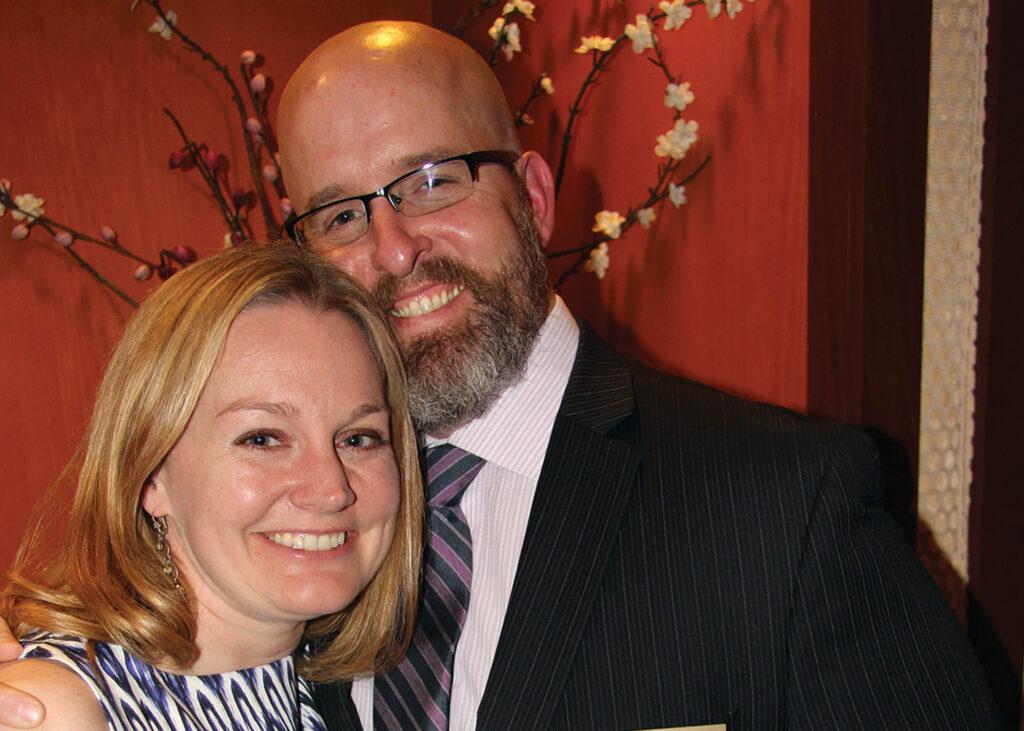
One of Colorado’s most highly respected theater companies changed its name during the pandemic. Now it’s ending its latest season with more change.
The national award-winning Butterfly Effect Theatre of Colorado — formerly Boulder Ensemble Theatre Company — is affectionately known simply as BETC.
Now after 17 years at the helm of the theater company they co-founded, husband-and-wife team Rebecca Remaly and Stephen Weitz are stepping down as the managing director and producing artistic director, respectively, at the end of this season.
Remaly said that soon after the couple arrived in Colorado in 2004, they noticed the Colorado Shakespeare Festival and Boulder’s Dinner Theater/BDT Stage were thriving, but beyond that, they didn't see contemporary American theater in the greater Boulder area.
Remaly said they started the theater company without much foresight.
“We started the theater company the way a kid gets a puppy in college, you know, ‘This will be fun. What could we go wrong? This won't be work,’” Remaly said. “And so we learned as we went. We made mistakes; we learned from them. And, here we are 17 years later.”
Weitz said in addition to the business of running a business, it was a constant struggle of how to use limited resources and limited time to keep up the quality of the art they produced.

“I think one of the things that we learned — I think we took this very seriously from the get-go, but it became even more prominent over time — was the people that work with us are the magic. You know, they are the ones who bring things to life,” Weitz said. “They are the ones who give of their time and energy. And we really learned that's where we need to invest.”
Both Remaly and Weitz said they agree that running this company required them to wear many, many hats, and to constantly put out fires. They also agree the fun part was making plays.
“The really fun part is working with all the amazing people that we've gotten to work with over the years. Whether it was our staff or our board, people who gave of their time and energy to make it possible,” Weitz said. “All of the artists that we've worked with in the room, the playwrights that we've worked on, developing new plays, the designers, stage managers, everybody. You know, that's really the fun of theater is getting in a room with a bunch of other creative people and making something great. That's absolutely the end all be all of the whole exercise.”
Remaly agreed: “I think one of the fun parts for me, from the perspective of the managing director, was being able to create work, create jobs, and opportunities for the amazing talent that we have in the Denver metro area. And being part of economy.”
Weitz says while they understood the value of creating a theater company, the pair didn't realize how audacious an endeavor it would be. He says he never pictured doing it for 17 years.
“I don't know that we maybe would've done it if we had known that it was going to be what it turned out to be, cause it's quite daunting, you know?” Weitz said. “The whole process of keeping it alive and keeping it turning over from year to year and dealing with turnover and all those things. It's been incredibly rewarding. But I do wonder if we had seen it all laid out before us, if maybe we might have, you know, decided to open a restaurant.”
For all 17 years, Remaly also had another full-time job.
“A few years into the company, we got married a few years after that, we had our son and I would like to wear a few less hats than I have been wearing, for many, many years.” Remaly said. “I mean, this has all been so rewarding and such a wonderful learning experience.”
On March 30, the BETC board announced that established theater-makers Jessica Robblee and Mark Ragan will step in as artistic and managing directors, beginning July 1. They also recently launched their own company called Clover & Bee Productions.
Ragan said they learned Remaly and Weitz were stepping away from BETC just as they launched their production company.
“I reached out to the board and said, ‘Wow, I've been such a fan of Butterfly for so long. I would love to explore the idea of Jess and I taking over Butterfly Effect and perhaps merging Clover & Bee into it.’” Ragan said.

Robblee said she feels honored to carry on what the co-founders have created.
“I really respect the body of work they've created,” Robblee said. “We aspire to continue to reach for many of the same goals. Our vision aligns really well with Butterfly Effect in many ways.”
The new leaders say they hope to continue experimenting with outreach to senior communities, youth, and families that BETC began with its touring program during the pandemic. “We're excited to dive into improv performance as a serial venture with some expert people in town that we really respect and love,” Robblee said. “And otherwise I think we are stepping in to continue to carry the torch forward basically.”
“I don't want them to regret this decision,” Ragan said of Weitz and Remaly. “They have placed their confidence in us, and it's our, gosh, awesome responsibility to build on that legacy,” Ragan said.
Ragan has studied Shakespeare his entire life — his three daughters are even named after Shakespeare heroines. A quote from Shakespeare is guiding him through the transition as he thinks about what the purpose of theater is.
“He said over 400 years ago through the mouth of Hamlet, that the purpose of theater is to show Virtue her own feature, Scorned her own image and the very age and body of the time, his form and pressure. And every time I read that quote, I think nothing's changed,” Ragan said. “That's what I think really is the ultimate mandate for theater to hold up that mirror to nature.”
For Robblee, the chance to work toward building community and making shows is a previous one to her “because actors and artists are vying to find work and working in all sorts of odd venues, trying to get seen and have an opportunity and a platform to bring in more artists and make more projects happen.”
As their time in the leadership of the theater company they founded comes to an end, Weitz reflected on the value of the role theater has in this community.
“As audience members, as participants, as makers, it's a gift for us who make it, it's a gift for us who participate or consume art,” Weitz said. “There's nothing written into the universe that says it'll always be there or it'll always be what we want it to be, or it'll always fulfill us in the same way. So that, I think, is just something that has really kind of been rattling around my head lately: how lucky we are, all of us, to be a part of the artistic universe, if you will.”
Remaly said there is one thing that she thinks theater can do better and perhaps more distinctly than any other art form, which is its ability to foster empathy. “Not just from the stories that are portrayed on stage, but empathy with your fellow audience members, empathy with your fellow artists that you're working with, both on stage and off. And I think that's something we've always needed, but also feels more important now than ever.”
The Butterfly Effect Theatre Company closes this season with a National New Play Network rolling world premiere of “Eden Prairie, 1971,” by Mat Smart. It plays April 6-29 at the Dairy Arts Center in Boulder.









